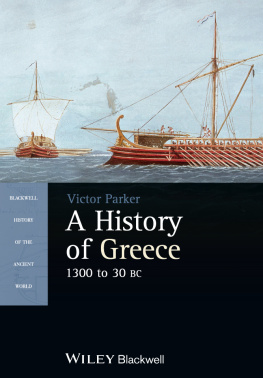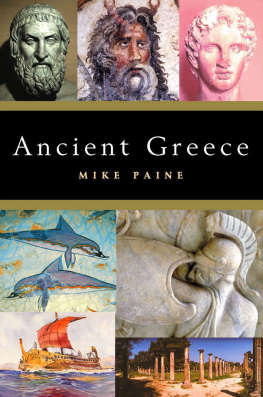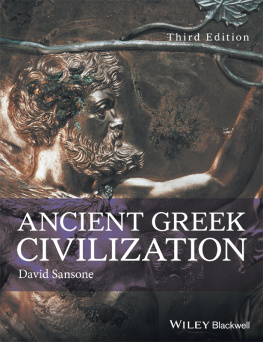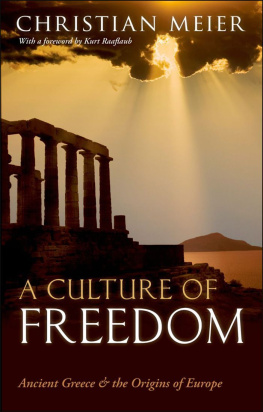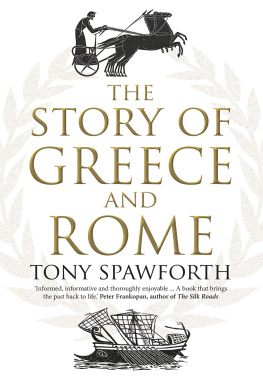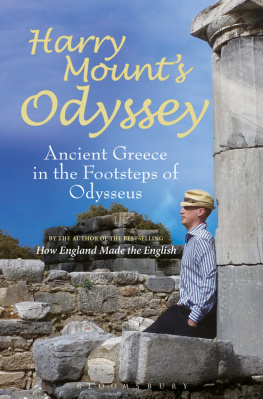ANCIENT
GREECE
ANCIENT CIVILIZATIONS
ANCIENT
GREECE
Edited by Michael Anderson

Published in 2012 by Britannica Educational Publishing
(a trademark of Encyclopdia Britannica, Inc.)
in association with Rosen Educational Services, LLC
29 East 21st Street, New York, NY 10010.
Copyright 2012 Encyclopdia Britannica, Inc. Britannica, Encyclopdia Britannica, and the Thistle logo are registered trademarks of Encyclopdia Britannica, Inc. All rights reserved.
Rosen Educational Services materials copyright 2012 Rosen Educational Services, LLC. All rights reserved.
Distributed exclusively by Rosen Educational Services.
For a listing of additional Britannica Educational Publishing titles, call toll free (800) 237-9932.
First Edition
Britannica Educational Publishing
Michael I. Levy: Executive Editor, Encyclopaedia Britannica
J.E. Luebering: Director, Core Reference Group, Encyclopaedia Britannica
Adam Augustyn: Assistant Manager, Encyclopaedia Britannica
Anthony L. Green: Editor, Comptons by Britannica
Michael Anderson: Senior Editor, Comptons by Britannica
Sherman Hollar: Associate Editor, Comptons by Britannica
Marilyn L. Barton: Senior Coordinator, Production Control
Steven Bosco: Director, Editorial Technologies
Lisa S. Braucher: Senior Producer and Data Edito
Yvette Charboneau: Senior Copy Editor
Kathy Nakamura: Manager, Media Acquisition
Rosen Educational Services
Alexandra Hanson-Harding: Editor
Nelson Sa: Art Director
Cindy Reiman: Photography Manager
Matthew Cauli: Designer, Cover Design
Introduction by Alexandra Hanson-Harding
Library of Congress Cataloging-in-Publication Data
Ancient Greece / edited by Michael Anderson.
p. cm.(Ancient civilizations)
In association with Britannica Educational Publishing, Rosen Educational Services.
Includes bibliographical references and index.
ISBN 978-1-61530-562-9 (eBook)
1. Greece CivilizationTo 146 B.C. Juvenile literature. I. Anderson, Michael, 1972
DF77.A5874 2012
938dc22
2011000086
On the cover, page : The Poseidon Temple overlooks the Mediterranean from a headland in Sounion, Greece. Shutterstock.com
Pages www.istockphoto.com/Peter Zelei; remaining interior background images www.istockphoto.com/Alessandro Contadini; back cover shutterstock.com
CONTENTS





INTRODUCTION

W hen Pericles became leader of Athens around 460 BC, he set out to make it the queen of Hellas (Greece). He succeeded. During his 30-year rule, Pericles brought Athens to its greatest glory, making it the most beautiful, brilliant, and powerful city in the Greek world. He had the Acropolis rebuilt with gleaming marble temples to replace those that had been destroyed in war. But more importantly, Athens became an unrivaled center for the arts, mathematics, science, political thought, and philosophy. Some of the most brilliant minds that ever livedthe playwright Sophocles, the sculptor Phidias, and the philosopher Socrates among themwere gathered in one place, reaching for ever higher levels of achievement. As Pericles said, Our love of what is beautiful does not lead to extravagance; our love of the things of the mind does not make us soft. These stubborn, inventive, experimental Athenians helped to lay the foundations of Western civilization.
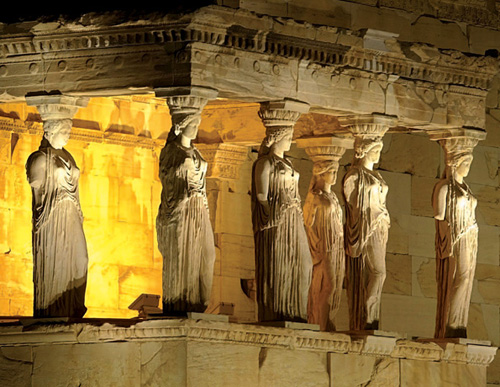
The Erechtheum , a temple of the goddess Athena, stands atop the Acropolis of Athens, Greece. Six marble female figures, called caryatids, serve as pillars on its famous Porch of the Maidens.Milos Bicanski/Getty Images
But there was much more to ancient Greece than Athens. Athens was just one of the many so-called city-states that occupied mainland Greece. And from this peninsula the Greeks spread over a vast collection of islands in the Aegean Sea and to colonies along the coasts of the Mediterranean and Black seas. Unlike most ancient civilizations, Greece wasnt held together by one powerful leader. The city-states were independent, each with its own system of government, and they were just as likely to compete as to cooperate.
There is also much more to ancient Greeces long history than the age of Pericles. In this volume you will discover the great Minoan civilization of Crete, which left behind beautiful art and palaces, and the Mycenaean kingdom, which fought the Trojan War and would later be immortalized in the Odyssey. You will also learn about other powerful city-states, such as fierce, militarized Sparta, which united with Athens to defeat the powerful Persian Empire in the early 5th century BC.
You will also see the contentious side of the ancient Greeks. The golden age of Pericles was undone after hubrisa Greek word for exaggerated prideamong the Athenians, combined with the jealousy of other city-states, inspired the momentous Peloponnesian War between Sparta and Athens. The two powers led alliances that, between them, included nearly every Greek city-state. The fighting, which lasted nearly 30 years, ended with the defeat of Athens and the demise of its empire. A more long-range result of the war was the weakening of all the city-states.
The influence of Greece was revived in the 4th century BC by the young Macedonian king Alexander the Great. He established his rule throughout Greece before setting out for world domination, conquering land as far away as India. Through his conquests he spread Greek culture far and wide, a process that continued in the centuries after his death. In Greece itself, the Hellenistic Age, as this era was known, was a time of fine art and sophisticated thought. But Greece never regained its power, and it was defeated by the Roman Empire in 146 BC.
Ancient Greece brought the world plentiful giftsdemocracy, geometry, drama, philosophy, and lyric poetry among them. In this volume you will see how the creative, contentious Greeks developed ways of thinking and being that still shape the world today.
CHAPTER 1
THE ORIGINS OF ANCIENT GREECE

T he glory that was Greece, in the words of American writer Edgar Allan Poe, was short-lived and confined to a very small geographic area. Yet it has influenced the growth of Western civilization far out of proportion to its size and duration. The Greece that Poe praised was primarily Athens during its golden age in the 5th century BC. Strictly speaking, the state was Attica; Athens was its heart. The English poet John Milton called Athens the eye of Greece, mother of arts and eloquence. Athens was the city-state in which the arts, philosophy, and democracy flourished. At least it was the city that attracted those who wanted to work, speak, and think in an environment of freedom. In the rarefied atmosphere of Athens were born ideas about human nature and political society that are fundamental to the Western world today.
Next page
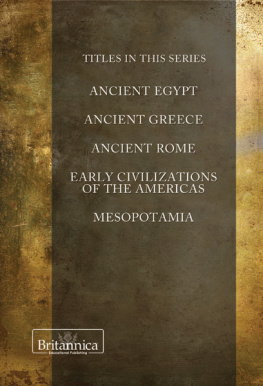






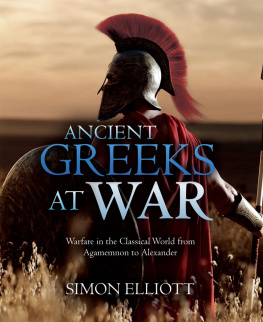
![Michael Lovano - The World of Ancient Greece: A Daily Life Encyclopedia [2 Volumes]](/uploads/posts/book/268736/thumbs/michael-lovano-the-world-of-ancient-greece-a.jpg)
